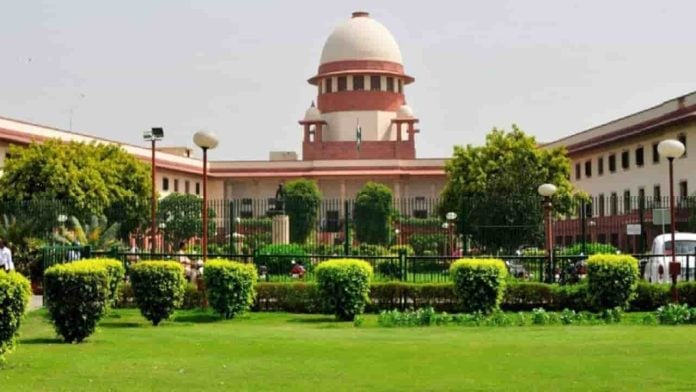The recent notification by Centre amending the Electoral Bonds Scheme for allowing an additional window of 15 days for the sale of the bonds was issued.
In a supplementary affidavit filed by the NGO Association for Democratic reforms before Supreme Court. it is mentioned that this notification overruled the objection raised by the Ministry of Finance and Ministry of Law & Justice officials.
The Ministry of Finance on November 7, 2022 ,amended the Electoral Board Scheme for allowing the additional period of 15 days for sale of Electoral Bonds in the year of General Elections to the Legislative Assembly of States and Union Territories.
The notification was issued ahead of the assembly elections in Himachal Pradesh and Gujarat .
As per the ADR the amendment has been done to ensure that more and more donations can be made in a completely opaque manner before state elections.”
As per the documents obtained by Commodore Lokesh Batra under the RTI Act, the ADR the senior officials of the Ministry of Finance have been warned by the sub-ordinate officers against the amendment to the Scheme since matter is sub-judice in Apex Court and the Model Code of Conduct is in force.
It has also been stated that the officials suggested to obtain legal opinion from the Ministry of Law and Justice and obtain the clearance from Election Commission of India since Model Code of Conduct is in force.
To answer the reservations raised by the officials, the Solicitor General of India said that there is no prohibition to the Government amending the scheme and allowing additional window of 15 days similar to the 30 days additional window allowed in the year of Lok Sabha elections.
As per the ADR, the Economic Affairs Secretary had said that, similar amendment were proposed in March 2021 which were noted by the ECI and this does not require another reference by ECI is not required.
The petitioner contended that suggestions of the lower-level officials were put before the finance minister by the senior officials, but proposal were overruled.
As per the ministry official the concurrence of ECI for the amendment or for the issuance from the MCC perspective is not needed.
The ECI will have to be informed about the proposed issuance.
An electoral bond is an instrument in a form of promissory note or bearer bond which can be purchased by any individual, company or association of persons having the citizenship of India.
The bonds, which come in different denominations, are issued for the purpose of contribution funds to political parties in its existing scheme in the country.
The pleas challenging the scheme were mentioned in April this year by advocate Prashant Bhushan before then Chief Justice of India (CJI) NV Ramana who promised to list the matter, however this could not be possible.
Electoral bonds were introduced through Finance Act 2017, which in turn amended three other statutes – the RBI Act, the Income Tax Act and the Representation of People Act – for enabling introduction of such bonds.
The Finance Act, 2017 brought a new system of electoral bonds to be issued by any scheduled bank for electoral funding.
The Finance Act was passed as a money bill, which meant that it did not require the assent of Rajya Sabha.
Various petitions are pending before the top court which challenge at least five amendments made to different statutes through Finance Act 2017 and Finance Act 2016 on the ground that they have opened doors to unlimited, unchecked funding of political parties.
Petition has been filed in the same regards by Association for Democratic Reforms and Common Cause which alleged that the money bill route was adopted in order to bypass the Rajya Sabha, as the ruling BJP government does not have a majority.
The petitioners have also submitted that the consequence of the amendments was that annual contribution reports of political parties to be furnished to the Election Commission of India need not mention names and addresses of those contributing by way of electoral bonds, thereby killing transparency in political funding.
Another challenge that has been posed is the removal of the cap on donations by the amendment to the Companies Act, 2013 and the amendments made to Section 236 of the Foreign Contribution (Regulation) Act, 2010.


